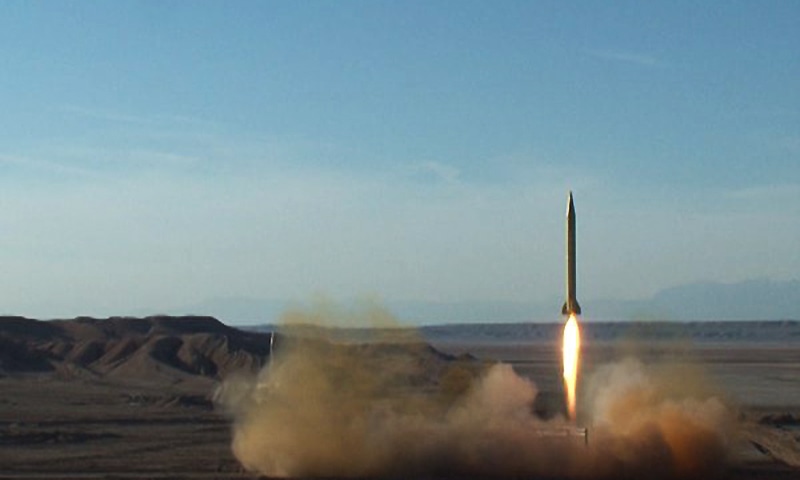London- The International Institute of Strategic Studies (IISS)’s annual report said that security challenges facing our world have not diminished and still require action from policymakers.
The 2017 report that was released in London also said conflicts continued to rage in Africa and the Middle East, along with the security disturbances in Ukraine and Europe.
During the session held by the institute to launch the “Report of Military Balance 2017”, experts discussed major security challenges facing the world, including the spread of extremist organizations, Iran’s recent tests of ballistic missiles, growing expenditure on military armory in Europe, China and the Middle East.
The session was chaired by IISS Director John Chipman and attended by Dr. Bastian Giegerich, General Ben Barry and Douglas Barry, Nick Childs, and Loussy Peru-Soder.
Responding to Asharq Al-Awsat, Ben Barry said that Yemen was heavily armed before the start of its ongoing war; the Arab coalition has intercepted missiles launched by Houthi militias, he said.
Concerning the Syrian war, he said that the annual report documents armories, and traditional capacities of the armed factions in Syria, including their developed and heavy arms, which are usually used by traditional armies. Evaluation of these arms was made through photos and videos which were shared on social media, he stated. Barry added that these armed factions do not own the logistic features of traditional armies; however, these factions merge, transform, spread, and trade weapons with other groups as we have previously seen in Iraq and Afghanistan.
Commenting on the efficiency of U.S.-led International Coalition strikes against ISIS since 2014, he said the organization has lost control of wide territories in Iraq. He also considered that ISIS has been weakened in Syria, but it is still able to resist any attack against it.
However, Barry said that the real threat of ISIS is that it has become an inspiration for extremists around the world, as the organization succeeded in exporting its ideology and in launching many attacks outside its strongholds and the territories it controls. Finally, he considered that the only way to undermine this threat is to motivate integration and coherence in communities, to focus on rehabilitation programs, and to promote coordination among security bodies on the local and global levels.
*Confusion on the nuclear deal
Concerning Iran’s nuclear issue, Paulina Izewicz, IISS’s researcher on nuclear issues, stated that the relation between the Iranian Nuclear Deal and Security Council Resolution 2231 is very complicated.
She said the resolution supports the deal but does not constitute a part of it; measures to control the Iranian program of ballistic missiles are also complicated, as the resolution is not binding regarding a request for Tehran to suspend the production of such missiles.
Izewicz added that uncertainty in the Iranian deal raises question marks on the agreement’s legal efficiency, which affects the nuclear deal itself and causes huge debate. Paulina did not rule out more U.S. sanctions on Iran after the change of the U.S. administration and amid Congressional calls for new restrictions on Tehran.
*Military expenditure in Asia
During his presentation, IISS Director John Chipman announced the launch of an electronic database including all the information featured in the report for the first time on the internet.
Chipman said that North Korea has enhanced its missiles capacity. He added that the growing terrorist attacks in 2016 have highlighted the challenge of cross-border terrorists. Many countries announced their readiness to launch military activities aiming to protect their national security, he noted.
Chipman revealed that the world has witnessed a constant shift in Asia’s military expenditure. The report showed that defense expenditure in Asia (especially in China) has grown by 5-6% on annual bases. These numbers came despite a drop in the global military expenditure in 2016 by 0.4% compared with 2015, following the drop in oil prices.
*China competes with the West in air weapons
The report revealed that western technological-military excellence has faced growing challenges. China has been up to par with the West, especially in air defense. Over the past years, China has depended on national efforts to develop and manufacture national military systems. China has allocated additional sums in its budgets for this purpose. China’s official defense budget last year was 1.8 times higher than those of South Korea and Japan combined. It also accounted for more than a third of Asia’s total military spending in 2016.
*Russia threatens Eastern Europe
The report said that Russia has posed the biggest threat to countries in eastern and northern Europe and that Russian military power has grown.
